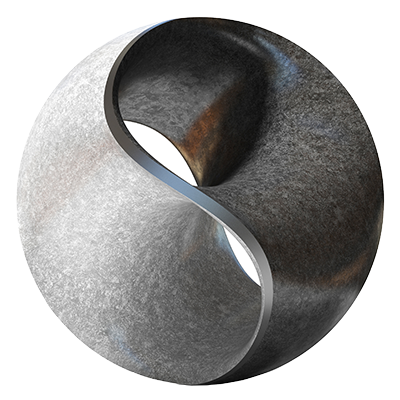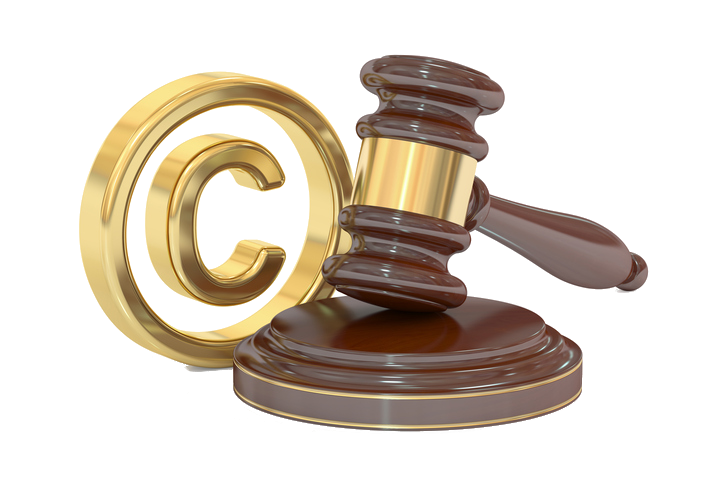Copyright Rights
Copyrights cover original works of art — items of the literary, dramatic, musical, artistic, audiovisual, and architectural variety. Subject to certain limitations and qualification, the copyright laws give a copyright owner exclusive right to:
- Reproduce a work
- Prepare derivative works based upon the work
- Distribute copies of the work to the public
- Perform the copyrighted work publicly
- Display the copyrighted work publicly
These rules only apply to copyrights in the United States, while other countries have different rules. Under the United States Copyright Act, these rights do not last forever. Assuming a work was created after January 1, 1978, copryight rights will last the author’s lifetime, plus life plus 70 years, or 95 or 120 years depending on other factors. For works created prior to 1978, other rules apply.

Notice and Registration are Only a Presumption of Rights
Many people assume if they’ve “copyrighted” (registered) they are “safe” when it comes to protection. Registration is an important first step to establishing rights. Unfortunately, while a registered copyright is a step toward notifying the world of the boundary of copyright rights to a work art, it does not keep others from infringing or trying to steal a creation.
Making People Do the “Right” Thing?
Sometimes the only thing that will gain another’s attention and force them to do the right thing is… a copyright infringement lawsuit . If anyone has profited from usining your intellectual property without permission (stealing), especially your copyrights, you need an experienced legal team to put things in motion.
Nexio Law Firm attorneys are ready to take on these copyright thieves and fight on your behalf. If someone has infringed your copyright, we can help stop the stealing, enforce your rights, and get you the restitution you deserve. We have litigated many copyright infringement cases.
Remedies Available Under Copyright Law
Under Copyright law there are three primary remedies available, as well as other remedies such as preliminary injunctions, permanent injunctions, actual damages or statutory damages, and recovery of legal fees & costs. Please see the copyright statute references below for further reference:
- “Any court having jurisdiction of a civil action arising under this title may grant temporary and final injunctions on such terms as it may deem reasonable to prevent or restrain infringement of a copyright.” 17 U.S.C § 502.
- “the copyright owner may … an award of statutory damages … in a sum of not less than $750 or more than $30,000 as the court considers just … [and if] committed willfully, the court in its discretion may increase the award to a sum of not more than $150,000.” 17 U.S.C § 504(c)(1) and (c)(2).
- “[a] copyright owner is entitled to recover the actual damages suffered by him or her as a result of the infringement, and any profits of the infringer that are attributable to the infringement and are not taken into account in computing the actual damages.” 17 U.S.C § 504(b).
- “the court in its discretion may allow the recovery of full costs … [and] may also award a reasonable attorney’s fee to the prevailing party as part of the costs.” 17 U.S.C § 505.
Defenses
The copyright registration process is filled with landmines and it relies heavily on the knowledge and truthfulness of the person who applied for the copyright registration. All too often people make assumptions, they don’t understand the technicalities, or they bluff their way through the registration process. Copyright registration tends to be a formalistic process and mistakes could cause the loss of rights.

In addition, there is an unease balance between Copyright laws, other federal laws, and individual liberties. Many excuses, justification, and exceptions exist. Even if one is “technically” an infringer, Defenses may result in the avoidance of financial liability or liability altogether. Over the past 20 years, congress has enacted, expanded, and clarified “limitations on liability relating to material online,” as further described in 17 U.S.C. § 512, provided certain steps have been taken.
In short, today’s copyright owners must not only be knowledgeable about their rights, but also how their rights interplay with others’ rights.
We’re here to Help
The attorneys at Nexio Law Firm are committed to helping our clients achieve their objectives. We can be reached at (949) 478-6830 or complete the contact form and we’ll be in touch soon.